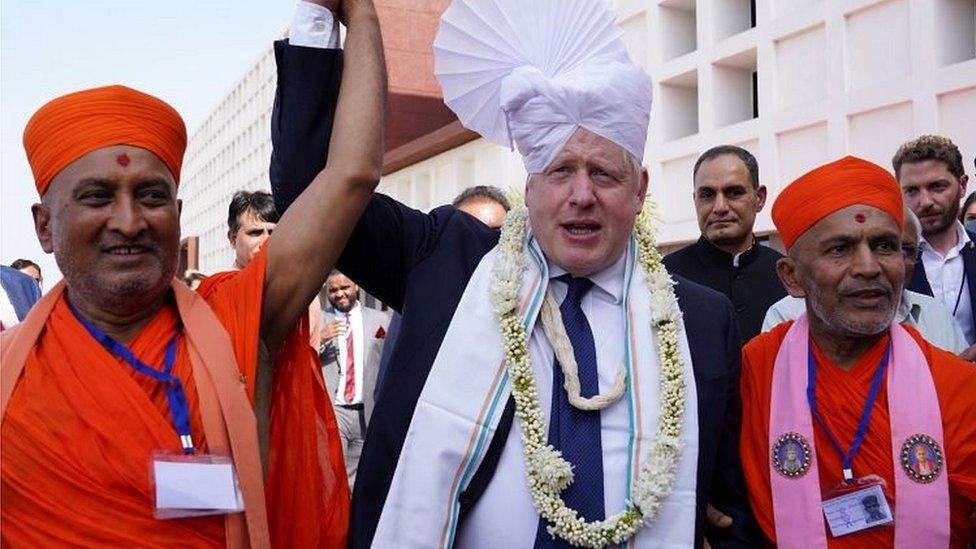Johnson vows to deepen trade ties with India after talks with PM Modi
- Published
- comments
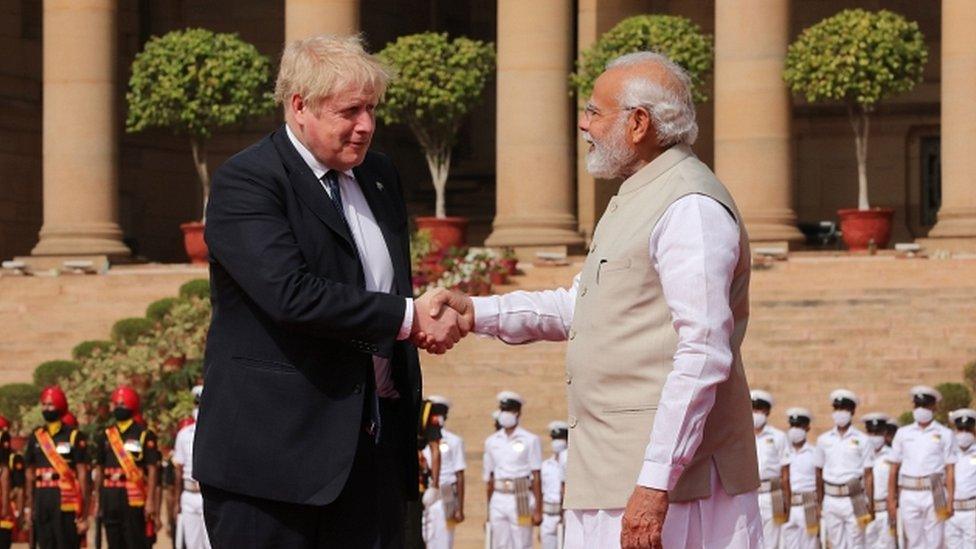
Boris Johnson met Indian counterpart Narendra Modi in Delhi for the first time since last autumn
Boris Johnson says India has agreed a "massive push" towards striking a post-Brexit trade deal with the UK.
After meeting his Indian counterpart Narendra Modi in Delhi, the PM vowed to get an agreement "done" by Diwali in late October.
Ahead of fresh negotiations next week, he said a deal could take UK-India trade to "a whole new level".
Mr Johnson has previously signalled his target covers reaching an agreement in principle, not signing a full deal.
Experts say any agreement with India this year is likely to be a precursor to a full agreement, with talks still at a relatively early stage.
And Mr Johnson warned there would be "tough asks" from both sides.
The meeting between the two leaders in India's capital came on the final day of Mr Johnson's two-day trip to the country, which has been delayed by Covid.
Speaking after the meeting, Mr Johnson said India was "an incredible rising power in Asia" and deepening trade was a priority.
In a signal that he could be flexible over an Indian demand for looser immigration rules for its nationals as part of a deal, Mr Johnson said Indian skills could help sectors such as IT.
"I'm not going to be dogmatic in refusing people with skill and talent in coming to the UK," he added.
"All I would say is we need to control it".

How much does the UK sell to India?

Britain is buying much more from India than it sells to India.
That's because India tends to put up high trade barriers such as taxes on UK exports, known as tariffs. Foreign cars attract tariffs of up to 100%, for example.
As a result, the UK currently sells less to India, with its vast population, than it does to Belgium.
And it's getting worse: last year, the UK sold £4.7bn worth of goods to India and bought £8.4bn - that's the biggest gap between the UK and India's exports and imports that there's ever been.
If you include services, the gap is even bigger.
The top five goods imported from India were clothing, medicine, fabrics, industrial machinery and electrical goods, with metals and power generators going in the other direction.

Ahead of the meeting, Downing Street announced the UK planned to streamline its licensing rules for exporting military hardware to India.
No 10 said the UK would support India to construct fighter jets, in an attempt to reduce the volume of weapons bought from Russia.
There was a commitment to increase research into lowering the cost of "green" hydrogen power - part of the UK's renewable energy plans.
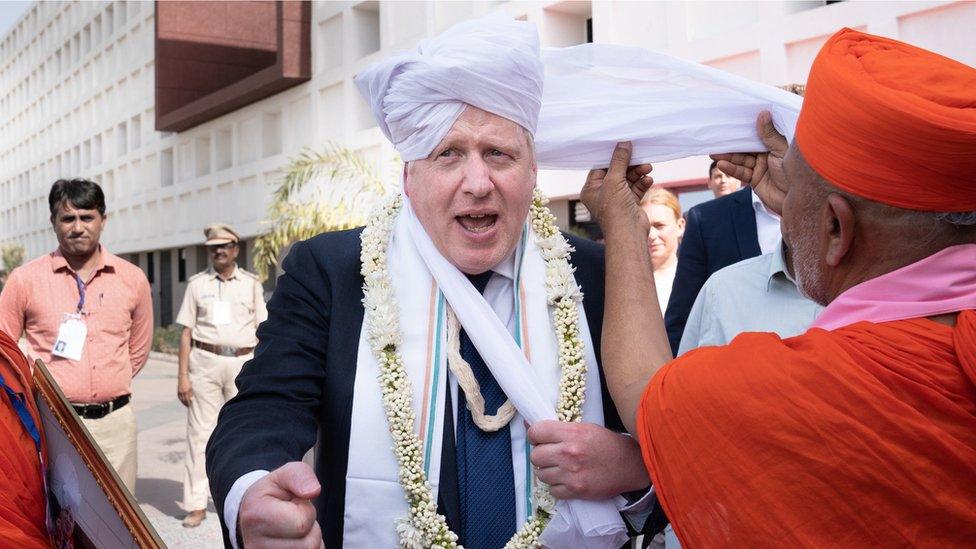
Prime Minister Boris Johnson visited Gujarat Biotechnology University on Thursday
Mr Johnson also said he had raised the issue of India's relations with Russia during his meeting with Mr Modi.
Along with other Western countries, the UK has been trying to persuade India to drop its neutral stance and join in condemning Moscow, which is its biggest arms supplier.
Earlier this month, India condemned killings in the Ukrainian town of Bucha - the strongest statement it has made since Russia's invasion. But it stopped short of blaming Russia for the violence, and has not criticised Russia directly since its invasion in February.
Mr Johnson said India had been "very strong" in its condemnation of the Bucha killings, and "everybody understands and respects" India's longstanding relationship with Russia.
He said Mr Modi had "intervened several times with Vladimir Putin to ask him what on earth he thinks he's doing".
"What Indians want is peace, and the Russians out," he added.

THE MOST POWERFUL MAN YOU'VE NEVER HEARD OF: Who is the Puppet Master?
EVERYTHING HAS CHANGED: Looking back on seven turbulent years in politics

Related topics
- Published3 March 2022
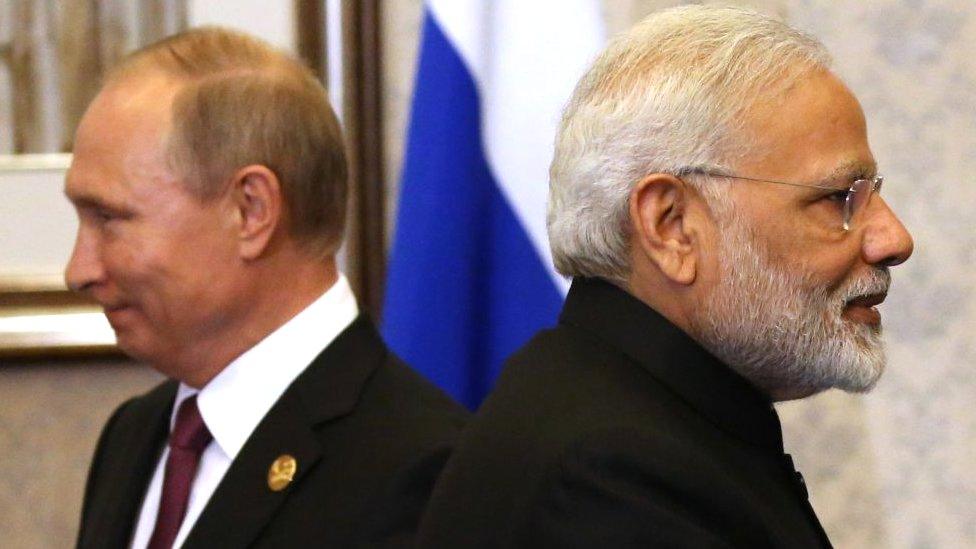
- Published22 April 2022
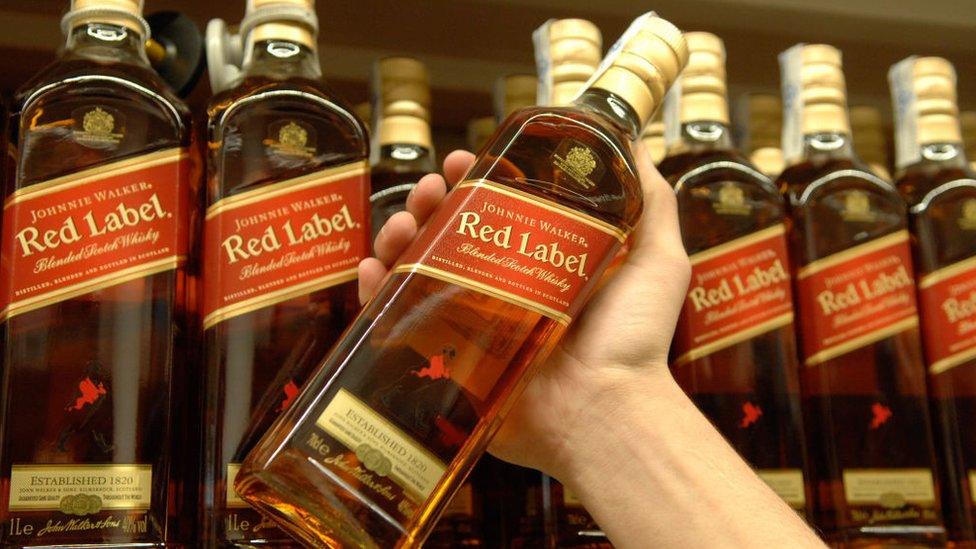
- Published21 April 2022
